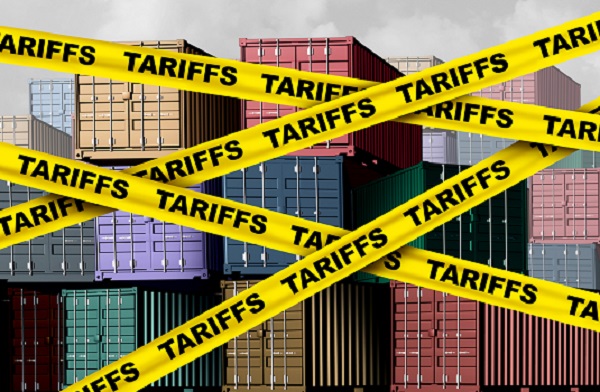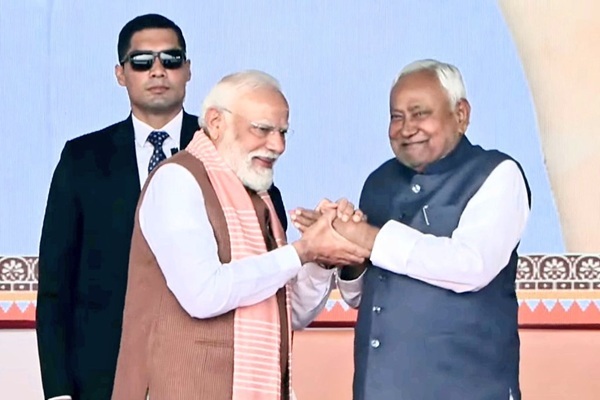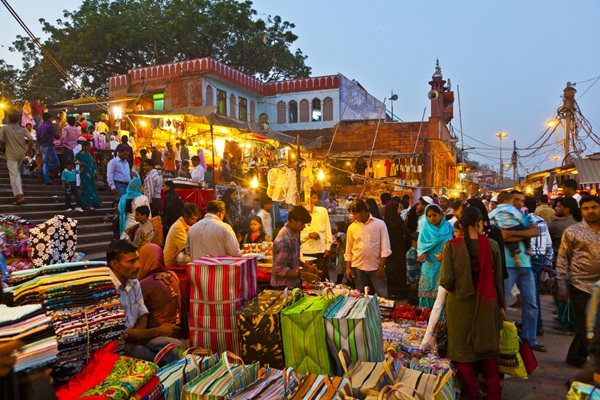.png)
Why Your Partner Hates Instagram, and Other Stories
From filters to FOMO, reels to relationship drama — Instagram has become the unofficial counsellor, critic and chaos machine shaping how couples love and argue today.

Kalyani Srinath, a food curator at www.sizzlingtastebuds.com, is a curious learner and a keen observer of life.
November 22, 2025 at 6:05 AM IST
There was a time when people flirted at bus stops, fought at dinner tables, and made up over cups of tea. These days, they do all three on Instagram. The couples that once exchanged glances now exchange reels. Love letters, long replaced by WhatsApp messages, have finally been buried under captions that read “Somewhere in the middle of chaos, we found each other.”
Instagram is the modern middleman of emotion, a 24x7 columnist for your insecurities, and your most active relationship counsellor who never sends an invoice. It’s an unpaid therapist, unsolicited dietician, over-friendly neighbour, and unwanted life coach wrapped in pink gradients and dopamine.
In the Indian household, the app isn’t just entertainment. It’s a lifestyle menace. Aunties who once compared jewellery now compare filters. Uncles who once bragged about their sons’ jobs now show off travel reels with euro conversions. From Chennai to Chandigarh, from Lucknow to London, everyone’s scrolling, liking, comparing, and despairing.
The average Indian couple, once united by drama, is now bound by bandwidth. There they lie, side by side every night, faces lit by a faint blue glow, thumbs performing synchronised marathons across screens. He’s ogling biryani tutorials and random men reviewing SUVs; she’s researching facial serums, sustainable outfits, and “10 ways to love yourself again” reels. Both pretend they’re relaxing, neither admitting how subconsciously competitive it all feels.
And when that one stunning couple from Croatia posts a vacation reel with perfectly timed drone shots, both look at each other and sigh. He wonders if he should’ve booked those tickets to Goa before flight prices went up. She wonders why he doesn’t own linen shirts.
Scroll, Compare, Regret
Instagram was meant for connection but functions like a perfectly balanced jealousy generator. It’s a machine that convinces you your love life is functional only if it’s photogenic. Couples who used to argue about who left the lights on now argue about who forgot to post the anniversary story first. Arguments once ended with dramatic silence; now they end with blocked accounts and vague quotes about “protecting your energy.”
Every relationship online looks cinematic. Someone’s husband in Mumbai just cooked a seven-course meal. Someone’s wife in Toronto got surprised with a mountain proposal complete with a snow heart. Meanwhile, you two are arguing over the Swiggy bill. “Why can’t we do nice things like them?” she asks. “Because they have a tripod,” he replies, scrolling faster.
Even dinners feel like unpaid modelling assignments. The food lands on the table piping hot, but no one’s allowed to touch it until every angle’s documented. Regular khichdi cries in the corner while spaghetti with basil looks down condescendingly from a reel. Families around the world are now eating cold dinners but serving hot content.
And then there’s the global competition of health. The app is a constant parade of people half your age doing headstands at sunrise and sipping green juices. Your spouse sees a yoga challenge, downloads it “just to check,” and two days later is sore in body and spirit. Middle age already bruised the ego; now it’s also inflaming the knees. You think maybe this marriage isn’t fading because of routine but because neither of you can touch your toes anymore.
Scroll Together
The aesthetic pressure doesn’t end at abs. There’s home décor guilt too. Every influencer seems to own beige curtains that whisper minimalism, potted plants that never die, and candles with names you can’t pronounce. You look around your own house — chipped mug, blinking Wi-Fi light, plastic bucket in the corner — and for a brief second, you start to believe you need therapy via Amazon, Nestasia and the like.
Instagram’s side hustle, of course, is retail temptation. That “one small purchase” quickly snowballs. He buys a fancy coffee grinder he can’t operate; she buys an air fryer she’ll eventually use for toast. You both agree these were “useful investments” — the fraud continues until you realise your savings plan now depends on the next Amazon sale. Somewhere between serums and sneakers, the marriage balance sheet tilts dangerously toward “reel-inspired bankruptcy.”
Meanwhile, Instagram’s algorithm eggs you on with surgical precision. You’re shown reels of couples “building wealth together” right after you blow a week’s grocery budget on a set of rustic ceramic plates. It’s personal insult wrapped in pastel typography.
But perhaps the funniest part is how communication itself has evolved. People no longer speak; they tag. You can be sitting three feet apart, yet instead of talking, you send a reel titled “This is us.” Your spouse responds with one captioned “When he pretends to listen.”
Congratulations — you both just had a conversation without opening your mouths. It’s passive-aggression with background music.
Even your nosy neighbours have entered the game. Remember Rani Aunty, who once peeked through her window to judge your lawn? She now watches your stories daily, leaving the occasional “So cute beta.” Across the globe, there’s an Aunt Susan doing the same thing while sipping lukewarm tea. Strangers on opposite continents are now united by mutual curiosity and shared judgment of your food photos.
And if all that weren’t enough, Instagram has introduced the cruelest dynamic of all: relationship rankings by likes. Miss your partner’s post even once, and you’re accused of negligence. “Everyone else liked it,” she says. Somewhere in London, a couple is breaking up because he didn’t comment heart emojis. Somewhere in Pune, a husband sleeps on the couch for the same reason. Digital affection has become a global language of survival.
The “couple challenge” reels only make things worse. “Let’s try this trend,” she says, holding her phone. You nervously agree, because refusing might trigger conflict but agreeing guarantees embarrassment. Ten takes later, your marriage doesn’t look more romantic — it looks tired. Yet you post it anyway, because someone else might think your love is thriving, and that’s almost as good as it actually thriving.
Even celebrity couples play their part in this exhausting cycle. On one end, there’s an Italian influencer duo declaring that real love means spontaneous pizza trips to Florence. On another end, there’s an Indian cricketer couple revealing pastel nursery decor to millions. Ordinary folks like us just scroll between them, wondering if we should at least repaint the bedroom.
Love was once about finding common ground. Now it’s about finding common Wi-Fi speed. Husbands and wives no longer whisper secrets; they share logins. They don’t share gossip; they share memes. The universal language of marriage has shifted from “Did you eat?” to “Did you see that reel?”
But perhaps the only silver lining in this circus is how everything still comes full circle at bedtime. There you are, lying under a ceiling fan in Delhi or under a heater in Dublin, phones in hand, pretending to be detached but secretly waiting for one last video to make you laugh. And it happens. A reel of a middle-aged couple dancing offbeat to an old Kishore Kumar song flashes by. You both chuckle, nudge each other, and say, “One day, that’ll be us.”
Because for all its chaos and comparison, Instagram occasionally does what it promises: it reminds you that laughter is still possible. Behind the filters, captions, and midlife self-tanner crises, there are real moments quietly sneaking back. Sometimes through shared silence, sometimes through mutual mockery, but always through that tiny, glowing rectangle bringing absurd comfort.
And that’s the love that scrolls together — imperfect, sarcastic, forever online, perpetually broke, still finding jokes in the middle of noise. Two people sharing a couch, an internet plan, and one long scroll through everyone else’s better lives, shaking their heads and whispering, “Oof, these people.” Then laughing, because deep down, they know: they are these people.



